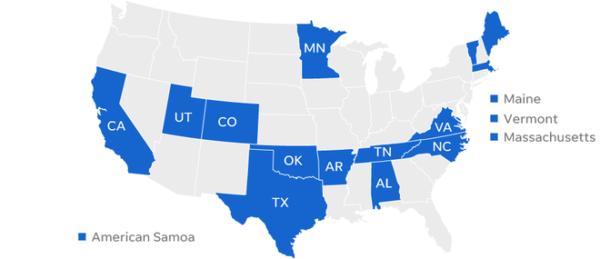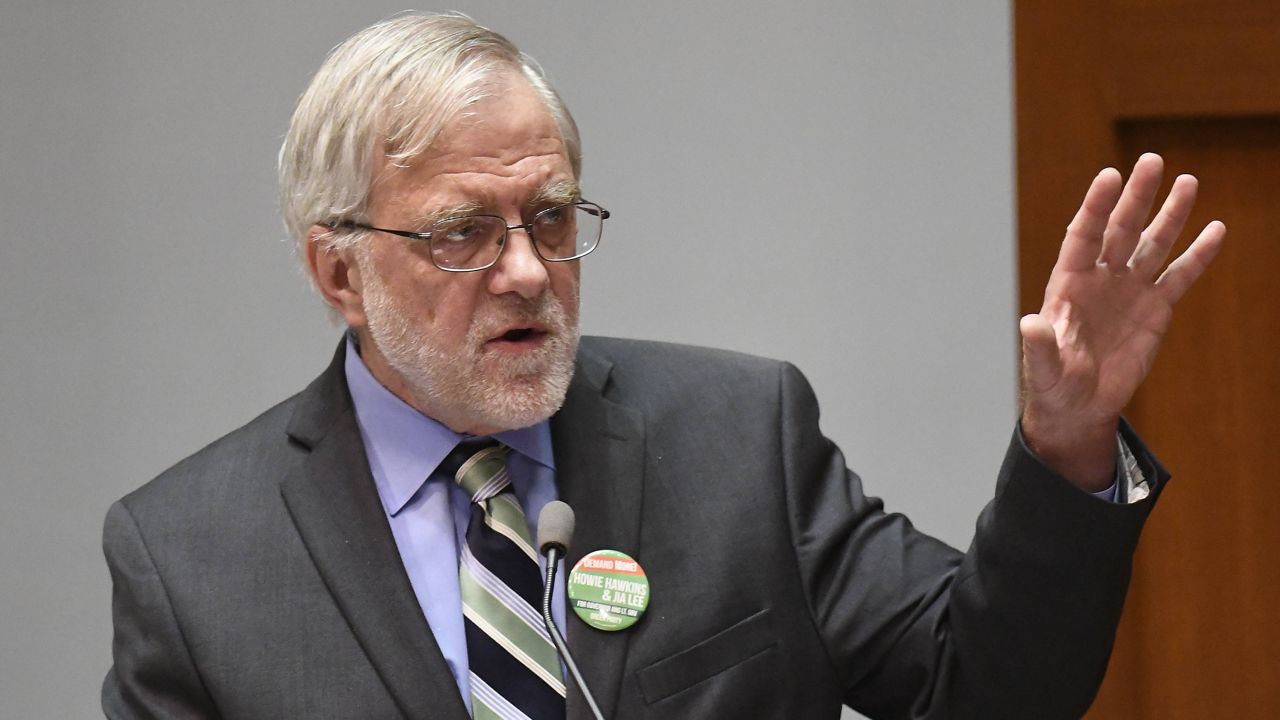Hours Election Day in California and 14 other Super Tuesday states, the presidential primary shifted dramatically, putting the liberal state in a position to play an even more decisive role selecting the next Democratic nominee.
Sen. Bernie Sanders, I-Vt., who has dominated polls and led the pack by double digits over the last several weeks, was poised for a resounding win. Suddenly, the field looks more open than it’s appeared for months.
“California has the potential to either mark the beginning of the end or the end of the beginning,” said Dr. Raphael Sonenshein, executive director of the Pat Brown Institute for Public Affairs at Cal State University, Los Angeles.
Sanders is still well-positioned to maintain his lead, and scoop up most of California’s 415 pledged delegates, all but guaranteeing him the nomination, but final-hour moves have upended expectations, Sonenshein said.
Billionaire Tom Steyer; former South Bend, Ind., Mayor Pete Buttigieg; and Sen. Amy Klobuchar, D-Minn., all dropped out of the race, adding a new dimension not accounted for in any January or February polls.
“Both Biden’s showing in South Carolina, the dropping out of three candidates after that, and the fact that large numbers of people have been holding their absentee ballots waiting to see what will happen in South Carolina,” Sonenshein said. “I have never seen anything like that.”
California has been a key battleground state from the start. Michael Bloomberg’s state director called California the former New York mayor’s Iowa. Bernie Sanders’ California spokesperson said Riverside, Calif., was the Vermont senator’s Des Moines.
“There is a lot at stake,” Sonenshein said. “I am inclined to think there is a lot more of this story to tell.”
Although polling shows Sanders as the heavy favorite, California is a make-or-break for his opponents. Biden, fresh off a decisive victory in South Carolina, hopes Super Tuesday will cement his position as the moderate alternative to Sanders. And after sitting out the first four contests, Super Tuesday will be the first test to determine how voters are responding to Bloomberg.
Here are some make-or-breaks.
No party preference voters, and crossover ballots
California has more than 6 million voters registered as No Party Preference and they could play a decisive role in the state’s Democratic Party primary — if they vote. Democratic National Committee rules require undeclared voters to take an extra step and opt-in if they want to participate in the primary, by requesting what’s called a crossover ballot.
Both the Sanders and Bloomberg campaigns have said educating NPP voters about the procedure and turning them out is key to their success. But in California, where roughly 40% of the electorate votes by mail, only 10% of No Party Preference voters requested crossover ballots, said Paul Mitchell, vice president of Political Data Inc., a bipartisan voter-data provider in California.
These voters can still participate in the primary if they go to a polling place, surrender their ballot and request a provisional crossover ballot. How many ultimately participate could be a make-or-break for candidates relying on their support.
“There are pockets of the electorate who are from the independent pool who would have supported any of these candidates,” Mitchell says adding that he wishes it was a cleaner process. “It will clearly impact the race. It will impact who wins.”
The moved-up primary date

Presidential campaigns typically approach California as a campaign contribution ATM rather than a battleground primary state. State lawmakers decided to move the primary election from June to March hoping to give voters more influence in the nominating process. If California cements Sanders’ status as the field’s front-runner or creates new momentum for Biden or Bloomberg, it’ll reflect how the state has transitioned from a primary season afterthought to a key contest on the path to the nomination.
“If California wasn’t part of Super Tuesday dishing out one-fifth of the votes that you need to become the nominee, we might not see this pace and rapid acceleration of this presidential race, that has happened,” Mitchell says. “It’s just whiplash.”
Air game versus ground game
In the lead-up to Super Tuesday, both Sanders and Bloomberg built out enormous campaign operations throughout the Golden State, with the idea that armies of volunteers and staffers would be key to winning the state’s trove of delegates. Bloomberg opened 24 offices and hired more than 300 staff members, while Sanders opened 23 offices and hired more than 100 staff members. Biden, on the other hand, opened only one office in east Los Angeles in the lead-up to the primary, hoping to accumulate momentum in early states.
“Biden hasn’t been out here the same level as some of these other candidates. He was playing this strategy of I am going to win South Carolina and then dive into California,” Mitchell says. “But he is diving into a pool that is shallower because he waited until the last two days to make California his focus.”
California results also will provide early indication of whether Bloomberg’s advertising blitz translates to voter support. After skipping the first four contests, Bloomberg spent a whopping $66 million on advertising in California. He hasn’t attracted thousands to California rallies like Sanders, but if his advertising gamble pays off, it’ll suggest dominating the airwaves can be just as decisive of a factor in modern-day elections.
“We could have a situation on election night where that early vote really shows the strong advantage those two candidates had in the last three weeks of being on the ground here in California,” Mitchell says. “But, the vote that comes in as people go to the polls and people who vote late go up, maybe then you’ll start to see the effect of this narrowing of the field.”
Minority voters
Latino and black voters are core Democratic Party constituencies and will be key for whichever Democrat ultimately secures the nomination.
After struggling to win support of minority voters in the 2016 Democratic Primary, the Sanders campaign aggressively courted black and Latino communities in the lead-up to the 2020 primary. In the Nevada caucuses, Sanders won 53% of the state’s Latino electorate, about three times greater than Biden’s 17%. But among black voters in South Carolina, he struggled compared to Biden, winning 17%, compared to the former vice president’s 61%, according to a Washington Post exit poll.
California and Nevada share a similar demographic profile. In Nevada, Latinos make up about 19% of eligible voters. Political scientists from UCLA’s Latino Policy and Politics Initiative project Latinos will account for 26% of California primary voters; Asian-Americans, 15%; and black voters 6.5%.
Mail ballots
The majority of the California electorate votes using ballots mailed to them rather than at polling places on Election Day. Out of the 16 million vote-by-mail ballots sent to California voters starting Feb. 3, only 3.3 million have been returned. The percentage of mail voters who cast ballots for withdrawn candidates like Klobuchar and Buttigieg could sway the outcome for the remaining candidates.

Vote centers
Fifteen California counties have adopted new requirements passed as part of the 2016 Voter Choice Act. They’ve sent every registered voter a ballot in the mail and replacing traditional polling places with centralized vote centers. “Voter Choice Act” counties provide voters opportunities to vote over a longer period of time, but at less locations. Election officials predict long lines on election day in vote center counties and the primary will offer indications about whether the state’s attempt to expand access to voting has been successful.
More:Super Tuesday: California has huge role in Dem primary, but new vote centers a concern
Vote counting & momentum
California’s audit requirements make the state notoriously slow at counting votes and final election results likely will not be certified until up to a month after the primary. California Secretary of State spokesman Sam Mahood told CBS News he wouldn’t be surprised if more than 2 million ballots remained to be counted at the end of election night.
Vote-counting snafus in Iowa and Nevada generated nationwide outrage and denied leading candidates the kind of momentum that traditionally follows victories in early contests. A delayed final tally in California could deny candidates like Bloomberg or Sanders the victory narrative they hope the results yield.
The predictive capacity of polling
Nearly every poll in recent weeks has shown Sanders with a sizable lead. The latest statewide survey done by USA Today/Suffolk University shows Sanders leading with 37% support, suggesting a conclusive victory. But early polls haven’t matched final results in early primary states, and the dramatic shifts in the final hours before election day could render a result unlike polls have predicted.
Polls suggest it’s unlikely that anyone will catch Sanders, but the split isn’t a done deal, analysts say.
“I think it probably means that Biden and Warren are going to pick up a lot of support from those absentee ballots and Election Day,” Sonenshein said. That could change how the rest of the country decides to vote. “It’s all about creating a sense of inevitability versus a sense that this has a long way to go.”
Endorsements: Do they matter?
Biden’s South Carolina triumph followed a final-hour endorsement from Rep. Jim Clyburn, one of the state’s most well-known Democratic politicians. But in California, will endorsements from political leaders sway the electorate? Do voters care that State Controller Betty Yee endorsed Biden or that First Lady Jennifer Siebel Newsom endorsed Warren?
Sen. Kamala Harris, D-Calif., had stockpiled endorsements from most of her home state’s politicians. Since her exit from the race put them back into play, candidates have been toiling to recruit her endorsers. Neither Harris nor Gov. Gavin Newsom have endorsed candidates, but the state’s other leading politicians have lined up behind their candidates of choice.
Biden leads the pack in declared support according to FiveThirtyEight, with endorsements from Sen. Dianne Feinstein, D-Calif., Los Angeles Mayor Eric Garcetti, and former Sen. Barbara Boxer. But Bloomberg has secured endorsements from more than 100 mayors, including San Francisco’s London Breed and Stockton’s Michael Tubbs. Endorsements from two of the state’s most high profile black mayors could help Bloomberg sway African-American voters to his corner.
Studies on past elections suggest the importance of endorsements is limited, especially in races where candidates are at ideological odds. Biden’s endorsements haven’t translated to poll numbers. A USA TODAY poll published Sunday gave him 15% of likely Democratic primary voters, behind Bloomberg (17%) and Sanders (37%).
The candidates
Make or break: Bloomberg
After skipping the first-four primary contests, Bloomberg needs a strong showing in Super Tuesday states like California and Texas to prove he has the support required to take on frontrunners like Biden and Sanders. His campaign has invested more in California than any other state, but a last-minute surge of momentum from Biden could cut into his support among California’s Democratic moderates.
“It is a real make-or-break for Bloomberg. If Biden or Warren start to move up the rationale for Bloomberg’s candidacy begins to shake and his entire campaign has been built around Super Tuesday,” Sonenshein said.
Make or break: Biden
Fresh off a convincing victory in South Carolina, a strong Super Tuesday showing from Biden could secure his status as a frontrunner who can challenge Sanders. Biden won endorsements from Buttigieg and Klobuchar after both withdrew from the race, but will their supporters follow suit?
Make or break: Warren
Super Tuesday could be Elizabeth Warren’s last stand. After leading in many California polls as recently as September 2019, Warren plummeted over the subsequent months and hasn’t finished higher than third in any of the first four primary contests. A strong Super Tuesday result could vault her back into the top-tier of candidates or end any hope she has of winning enough delegates to challenge Sanders or Biden.

Gabrielle Canon is the USA Today Network’s California reporter. Reach her at gcanon@gannett.com or on Twitter @GabrielleCanon. Sam Metz covers politics. Reach him at samuel.metz@desertsun.com or on Twitter @metzsam.


